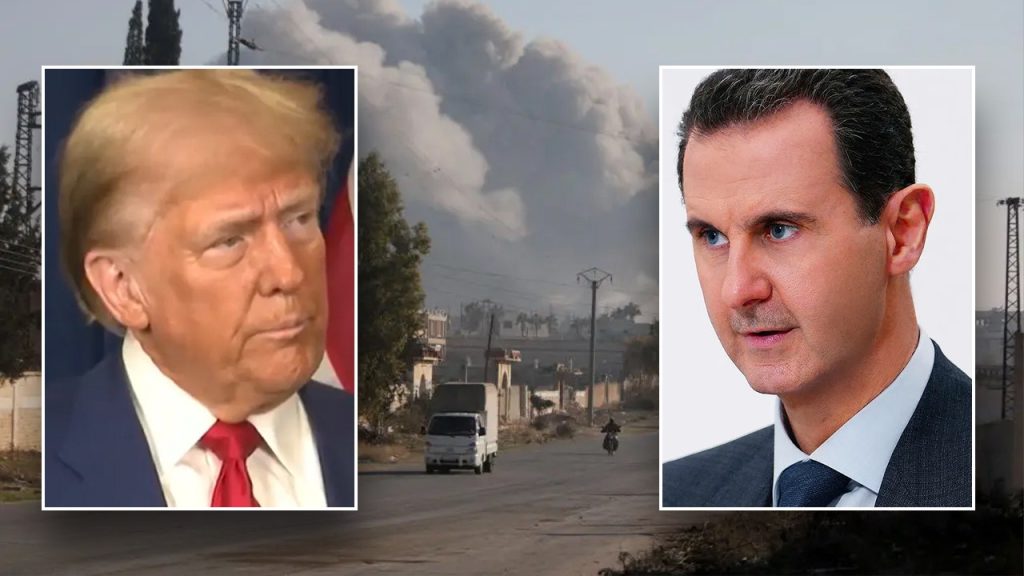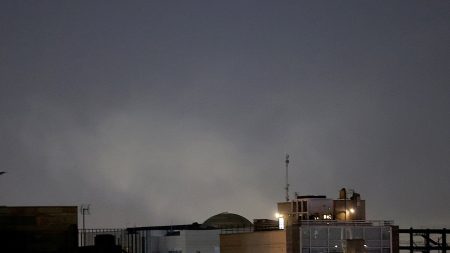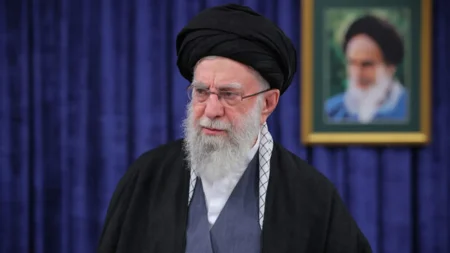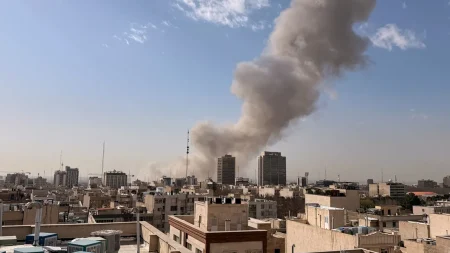The unexpected resurgence of Islamist rebels in Syria has thrown the Assad regime, along with its Russian and Iranian backers, into disarray, prompting reactions from international figures, including former US President Donald Trump. Trump, speaking out on the escalating conflict, reiterated his long-standing non-interventionist stance on Syria, emphasizing that the US should avoid entanglement in what he perceives as a complex and distant struggle. He criticized former President Obama’s handling of the 2013 chemical weapons crisis, arguing that Obama’s failure to enforce his “red line” emboldened Assad and allowed Russia to exert greater influence in the region. Trump’s comments reflect a consistent skepticism towards US involvement in the Syrian conflict, a position that has characterized his foreign policy approach.
The Islamist rebels’ rapid advance through Syria, capturing key cities like Aleppo and Hama, has brought them to the outskirts of Damascus, posing a direct threat to Assad’s grip on power. This unexpected turn of events has exposed vulnerabilities within the Assad regime and its allies, with Russia’s preoccupation with the war in Ukraine potentially limiting its ability to support the Syrian government. The rebels’ momentum has raised questions about the regime’s resilience and its capacity to withstand the ongoing offensive. The situation has been further complicated by an attack on a UN post in Syria, highlighting the volatile security environment and the potential risks to international personnel.
The swift deterioration of the situation in Syria has prompted international concern and diplomatic efforts to address the escalating conflict. US Secretary of State Antony Blinken engaged in discussions with his Turkish counterpart, focusing on the protection of civilians and the pursuit of a political solution in line with UN Security Council Resolution 2254. Turkey’s support for the Islamist coalition adds another layer of complexity to the already intricate dynamics of the conflict, underscoring the involvement of regional powers and their competing interests. The discussions between Blinken and Fidan highlight the urgency of finding a resolution to the conflict and mitigating the humanitarian consequences of the ongoing violence.
Experts on the region, like Phillip Smyth of the Atlantic Council, see Trump’s reaction as consistent with his previous stance on Syria, reflecting a realist perspective on the conflict. Trump’s apparent indifference towards the outcome, suggesting he wishes both sides luck, underscores his reluctance to engage in further military interventions in the Middle East. However, the potential use of chemical weapons by the Assad regime remains a serious concern, with analysts acknowledging the risk of such an escalation as the battle for Damascus intensifies. The chaotic nature of the conflict raises the prospect of various factions vying for control, further complicating the situation and potentially exacerbating the humanitarian crisis.
The rapid collapse of Assad’s defenses in several cities suggests a weakening of the regime’s military capabilities and a potential shift in the balance of power. The lack of effective mobilization and the apparent disarray within the Assad regime indicate a deeper vulnerability than previously assessed. The Islamist rebels’ rapid advance has exposed the limitations of the regime’s defenses and the potential for further territorial losses. The unfolding situation in Syria presents a complex and volatile challenge, with significant implications for regional stability and international security.
The international community faces the daunting task of addressing the humanitarian crisis, mitigating the risk of further escalation, and finding a sustainable political solution. The involvement of various regional and international actors, each with their own interests and agendas, complicates efforts to achieve a peaceful resolution. The ongoing conflict underscores the fragility of the situation in Syria and the urgent need for concerted international action to prevent further suffering and instability. The possibility of Assad resorting to chemical weapons adds another layer of concern, highlighting the potential for even greater devastation and the need for preventive measures.















